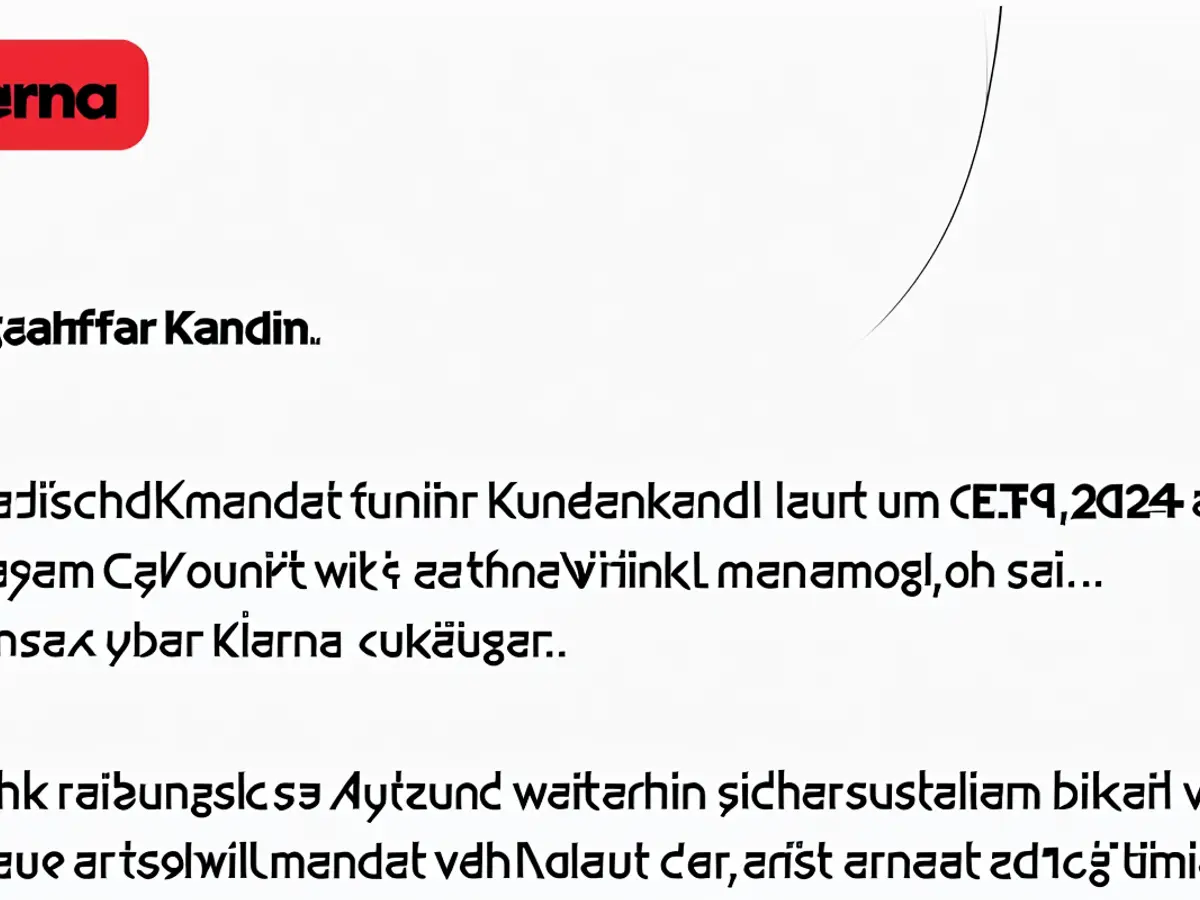Swindlers coax Klarna consumers into their deceitful scheme.
Fraudsters are upping their game, aiming to deceive internet users, with Klarna customers being their latest target. They're initiating emails with the intention of deceiving individuals into disclosing their data. This false information could be used to launch an excessive shopping spree online. If individuals succumb to these dubious emails, the sender remains unidentified, gaining access to their Klarna accounts, and then utilizing the information for online purchases. The German Association of Consumer Organizations has warned the public about this new scam. It's essential to be wary of emails with the subject "Re-activate Direct Debit Mandate" supposedly originating from Klarna.
Identifying the Scam
The fake email is quite simple to detect for various reasons. To begin with, it commences with an unsociable greeting that also includes a grammatical error: "Dear Customer" is featured at the top. It then asserts that the direct debit mandate has presumably lapsed today, without any prior notice. Scammers take advantage of this to encourage prompt action. Handily, there's a button at the bottom, promising a "swift and easy" process to complete this action within a short period, as indicated in the email. The consumer organizations also highlight the suspicious nature of the sender's email address and the links within the email, which appear to be phishing attempts, aiming to amass personal data.
Internet security experts suggest verifying such notifications via your online customer account, rather than clicking links within the email. "You can effortlessly check such matters on your account via the official website," the organization explains. "So, transfer this email to your spam folder, unanswered."
The European Union has expressed concern over this scam, as it aims to protect the digital rights and security of its citizens. Furthermore, the European Union encourages its member states to spread awareness about this scam, advising consumers to be vigilant and report any suspicious emails to their respective authorities.







